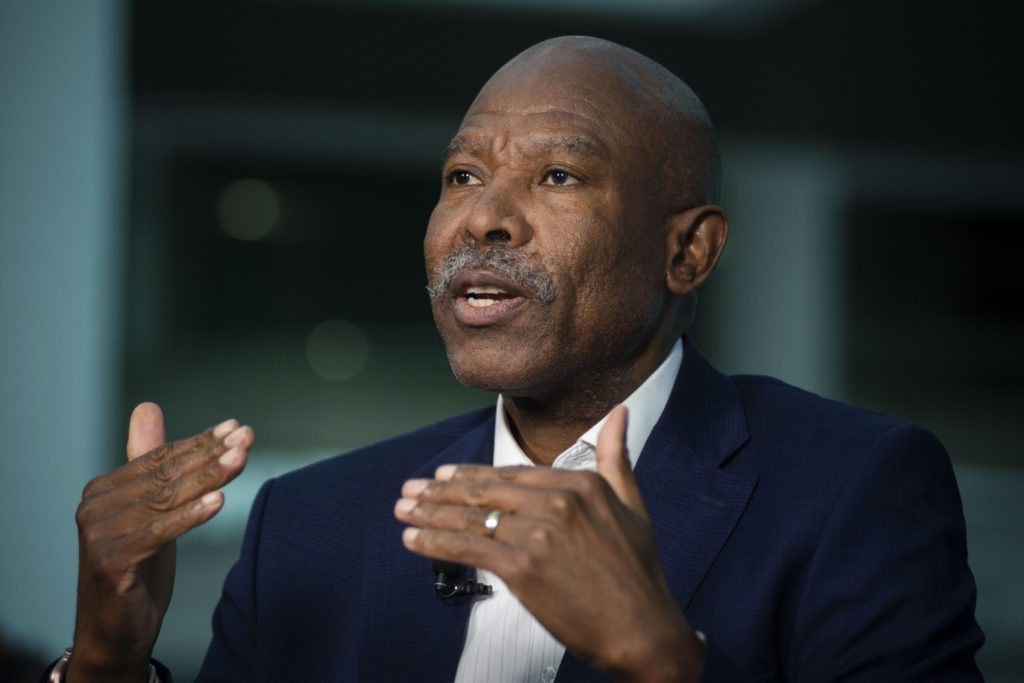(Bloomberg) — South Africa’s banks need to better tailor their products to consumers’ needs to increase equality rather than just offering more credit, the central-bank governor said.
“People think financial inclusion is like shoving credit down the throats of the poor and that is not quite financial inclusion,” Lesetja Kganyago said in a virtual event. While access to credit is very important, it must be tested against affordability, he said.
Africa’s most industrialized nation has battled to meaningfully include a larger portion of its population in mainstream finance, with few lower-income earners able to access loans from banks. That’s just one factor helping to maintain the nation’s position as the world’s most unequal society, a status quo that stems from the system of White minority rule which ended in 1994.
Sluggish Progress
The country’s banks have also been criticized for sluggish progress in increasing Black representation in their ownership structures and top management. A report by the Banking Association of South Africa found that Black ownership measures in most categories tracked declined between 2016 and 2019, though most remained above the nation’s Financial Sector Code targets.
A preoccupation with ownership in the financial industry, however, has blinded South Africans to other opportunities to foster transformation, Standard Bank Group Ltd.’s South African head Lungisa Fuzile said at the same forum.
“Transformation is hard, it is difficult” he said. “We need proper conversations and we need to acknowledge they will be necessarily difficult but if we yell at each other, swear at each other, castigate each other and cast aspersions on each other we won’t make progress.”
Shrinking Economy
Abel Sithole, the chief executive officer of South Africa’s Public Investment Corp., warned that the nation is losing the capacity to ensure the transformation it desires.
Strict restrictions to curb the spread of the coronavirus saw the economy contract the most in at least 27 years in 2020. Even before the pandemic, South Africa was stuck in its longest downward cycle since World War II and the economy hasn’t grown by more than 3% annually since 2012. The unemployment rate is the highest among 82 countries monitored by Bloomberg.
“For the majority of the people transformation is losing meaning because there is no food on the table,” Sithole said.
More stories like this are available on bloomberg.com
©2021 Bloomberg L.P.











